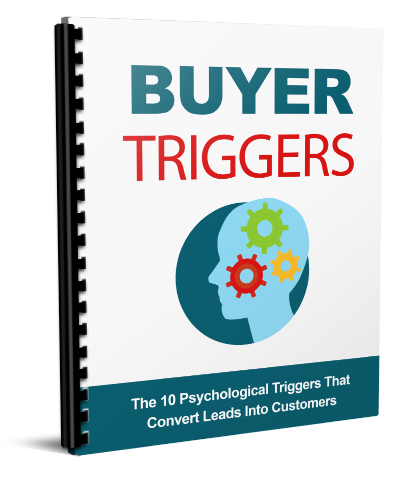PPC – short for “pay per click”- is a very common acronym in the world of digital marketing. It’s touted as one of the most cost-effective ways to market your business, as well as being an almost magical way to make your business known at just the right time for a variety of customers.
But what exactly is PPC? What should you know about pay per click advertising before you get started? Are there any things you should avoid, or is this the type of investment where loads of A/B testing is involved? Before you start signing up for ad campaigns, read on to learn what PPC is, and how it works.
Pay Per Click Advertising in a Nutshell
The concept behind PPC advertising is quite simple:
- You create an ad
- Your ad appears on various websites
- Whenever someone reading one such website happens to click on your ad, you are charged
Essentially, your ad lives on someone else’s website rent-free except when someone clicks on it.
What happens when they click on the ad? That is ultimately your decision as the business owner; however, sending the curious clicker to a landing page, or a squeeze page where they can learn more about your business and perhaps even sign up for your email list is ideal. Then, they can discover what your brand stands for, the products or services you provide, and what makes you stand out above the competition.
So there are a few pieces to the PPC puzzle that must be sorted out: the ad, the website hosting it, the landing page the ad will lead to, and of course, the payment arrangements between you (the advertiser) and the website owner.
The benefit of pay per click ads is twofold: first, your ad, with your brand logo, will be seen by anyone who looks at the pages upon which you’re advertising. Second, you don’t pay for this ad space until someone interacts with your ad. No click, no payment required, which is why PPC is considered very cost effective.
How Do I Get Started with PPC Advertising? (The Right Way)
Luckily, there are many avenues through which you can get started with your PPC ad campaign. Websites such as Bing (more here), Facebook/Meta, Instagram, and TikTok all offer pay per click ad options. Google Ads is seen as the current reigning monarch of PPC ads, with a process that is very simple and low-cost for advertisers and website owners alike.
However, you can only reach your goals of spreading brand awareness, gathering more prospective business, and increasing conversions if your ads have what it takes to stand out and perform.
The good news is that PPC ads can be targeted to certain audiences. You have the ability to select who sees your ads, regardless of the site you use to coordinate your PPC campaign. On Facebook/Meta, you can select the demographics, geographic location, and interests of the individuals who see your ads. With Google Ads, you can bid against other sites to gain valuable ad space on sites that will make sense for your product or service.
Read also: Finding your Target Audience
Let’s say you’re selling a closet organization system. You might get some traction on other home-related sites, for example, a recipe blog or a parenting forum.
But consider how much attention you could receive if your ad appeared on the site of a home cleaning guru, or on websites related to fashion. Those who are reading about how to make the most out of their wardrobe or closet space will already be in the mindset of purchasing a product such as yours, which means the likelihood of clicking will be much higher.
Targeting your PPC ad will mean more clicks, which means the cost will be higher overall, but the clicks will be far more meaningful than those who are only mildly interested in your product.
Sounds Great– I’ll Start My PPC Campaign Right Now
Enthusiasm is great, but strategy pays the bills. Bear in mind that despite the many benefits of pay per click advertising, there isn’t a guarantee that paying for those clicks is going to bring an immediate return on investment.
There will be a learning curve as you discover what people like. The ad that you spent so long carefully crafting, and the related landing page that you thought hit all the main points might not gain any traction at all. Those people who enthusiastically clicked earlier may forget all about your business once your ad disappears from the site where they found you.
Set Your Goals
You need to have clear goals.
- Do you want people to buy your product immediately?
- Sign up for your email list?
- Follow your social media accounts?
Remember, your business doesn’t begin and end with a single well-placed ad. Approach your PPC ad from a holistic brand standpoint. What prospective customers see in your ads should be reflected in your site, your blog, your social media accounts, and overall brand identity.
And Do Not Forget This
Additionally, you’ll need to continually update your campaigns. Just as keywords come and go, your ad’s relevance may wax and wane, depending on the latest trends, events, season, and so on. Marketing is rarely a “set it and forget it” scenario, and your PPC ads are no different.
Consider reviewing your PPC data analytics to determine what is working and what isn’t. How long do prospects stay on your site after they click your ad? What pages do they visit? How many of them sign up for your email list or follow you on social media? What keywords work? What keywords should you avoid?
Just like any other marketing endeavor, there will be significant fine-tuning and A/B testing along the way to determine what gets you the best results for the money.
If you need some help to set everything up, or even to manage your running PPC advertising campaigns, you can have a look at the professionals here below:
Final Considerations
Pay per click advertising is a fantastic way to widen your brand recognition and gain prospective customers from across the internet; however, it still requires plenty of effort.
Before you get started, check out some of the helpful resources provided by Google Ads, or the help center of your preferred ad outlet, to ensure you’re following their guidelines. Set very specific goals for yourself, and check metrics regularly to determine how close or far away from those goals you are.
As always, do a frequent sweep of your website to ensure your links are working, your pages are free from error, and that all of your content is top-notch. Then adjust as necessary, and you’ll be well on your way to creating a PPC advertising campaign that works for you and your business.









